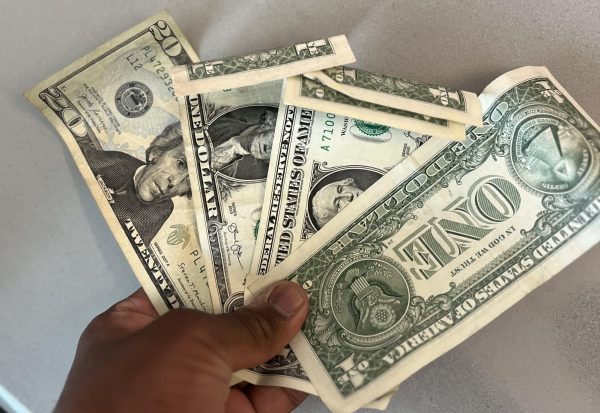Op-Ed: Covert antisemitism is more common and dangerous than overt antisemitism
Billboard over highway in Houston, part of a campaign to stop antisemitism.
Feb. 25 was a seemingly normal Saturday for a lot of people. They watched TV, ate breakfast, rested after a long week and did the typical things they would do every Saturday. However, for Jewish people, it was a day of worry and fear due to the looming threat of a “National Day of Hate.” The plan was for neo-Nazi groups to ramp up hate and violence against several groups, including Jewish people. Despite this, many Jews decided to overcome the fear by not hiding their Jewish clothing and doing their normal Shabbat activities. Even though nothing came out of this organized Day of Hate, it was just another event to add to the long-growing list of antisemitic incidents in the United States, where more covert incidents are starting to appear on the list than ever before.
Antisemitism, which is prejudice or hatred against Jewish people, has taken many shapes and forms throughout the years. Some of it is more covert, like the Great Replacement Theory (which although is mainly focused on groups of people of color, it can also be used to target Jewish people), meaning it is less openly displayed; some is more overt, like the hostage situation in Colleyville that occurred last year, which caused mass panic in Jews who frequently go to synagogue. Although overt antisemitism is starting to be more recognized, covert antisemitic theories and behaviors are still going by unnoticed.
A Jewish organization named the American Jewish Committee conducted a survey and released a report titled “The State of Antisemitism in America Report.” According to the report, 41% of American Jews feel less secure in the United States as Jewish people, 89% of American Jews think antisemitism is a problem in the United States and 82% think it has increased in the past 5 years. Furthermore, it found that 19% of Jewish people feel unsafe going to Jewish spaces, and 23% of Jewish people do not want to present publicly as Jewish. 26% of American Jews had antisemitism personally targeted at them, and 85% of young adult Jews and 64% general adult Jews saw or experienced antisemitism online. The fear felt by Jewish people doesn’t go by unnoticed, and several Jewish spaces have increased their security in order to ensure the safety of the Jewish attendants. However, just increasing security isn’t going to be the sole factor in ensuring that Jews feel safer in public.
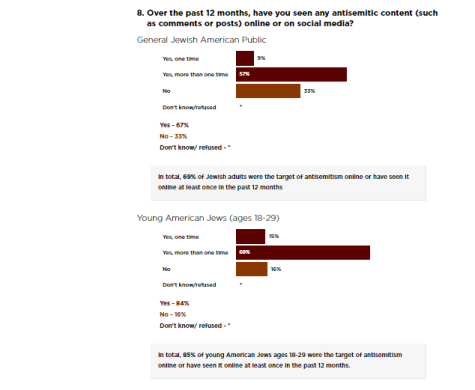
In 2023, we already had several incidents due to the continued spread of several antisemitic conspiracy theories. On Feb. 19, several flyers with antisemitic imagery and text were found in a neighborhood named Riverside Terrace. This neighborhood is historically black and Jewish, yet there were several other recent flyers found in other neighborhoods. Just a few days later, on Feb. 21, a neo-Nazi protest was staged outside of a preview of a new musical on Broadway called “Parade.” This musical tells the story of Leo Frank, who was falsely accused of murdering a woman and later lynched despite being proved as not guilty. On social media, there is a new post nearly every day describing antisemitic incidents that occur that no one is talking about, especially from Jewish accounts.
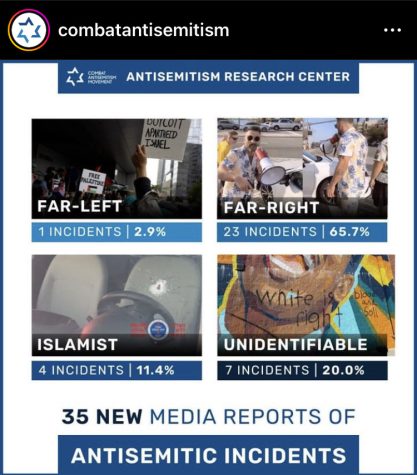
Antisemitism can appear in many forms of media, such as the new Hogwarts Legacy game, canon to the Harry Potter universe, which has sparked controversy for its underlying antisemitic plot. The goblins, who already exhibit many obvious antisemitic stereotypes, are a major plot point in the game. They appear to have large, hooked noses, and they are the only creatures who can be in charge of the gold and money at the wizarding bank. For example, at one point in the game, the goblins use a horn strongly resembling a Shofar (a horn used during Yom Kippur services) to rebel against and annoy the witches and wizards. Their rebellion also canonically occurs in 1612, which lines up with the year where a major Jewish pogrom started. Despite this, mostly only Jewish people have been calling out these “coincidences” within the game.
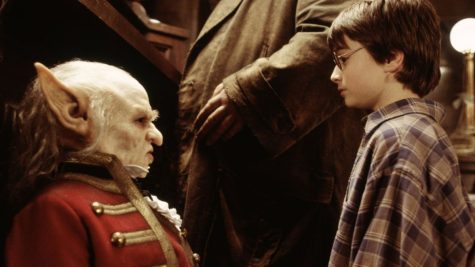
Many antisemitic claims that people make, especially online, go unnoticed because people do not spot the covert intentions. Antisemitism has existed for centuries, from the belief that Jews killed Jesus to “The Protocols of the Elders of Zion,” conspiracy theories that have existed for years. As social media platforms grow and develop, the history where these conspiracy theories seemed far away is slowly repeating itself.
Despite all of these examples, the covertness of antisemitism doesn’t stop purely at Judaism regarding the diaspora (Jewish people who live outside of Israel). The BDS Movement, also known as the Boycott, Divestment and Sanctions movement is a movement specifically targeted towards Israel and Zionism. The goal of the movement is to have Israel renounce itself as a Jewish state and to return the land to the Palestinians. In many cases, the influence of the goals of the BDS movement leak into current progressive movements, where Jewish people are asked to confirm that they are anti-Zionist in order to participate in their activism. This seems to emphasize a double standard towards Jewish liberal activists that non-Jewish activists do not face.
It is so important to recognize, call out and uplift the voices that go against antisemitism, especially the covert type. Theories rooted in ancient antisemitism, phrases that allude to hatred towards Jewish people and threats must be stopped and taken down. Listen to Jewish people when they speak out and educate yourself on antisemitism, so that when you see it, it can be called out. If the hatred is noted and stopped early, we may be able to prevent bigger, more overt antisemitism and anti-Jewish hate crimes from occurring more often. Jewish people should not be the only ones to call out and talk about antisemitism, especially covert antisemitism.
Your donation will support the student journalists of Carnegie Vanguard High School. Your contribution will allow us to cover our annual website hosting costs and fund field trips, competition fees, and equipment. We appreciate your support!
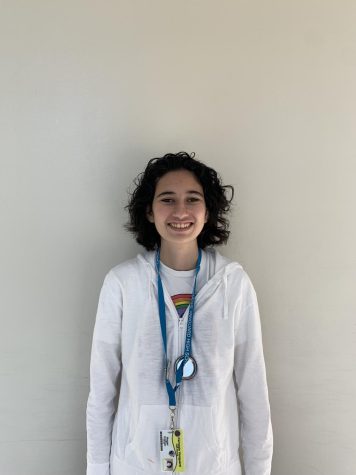
Hagar enjoys expressing herself through writing, but also through admiration of the fine arts as a whole. She sees it as a way to show how she is feeling...





